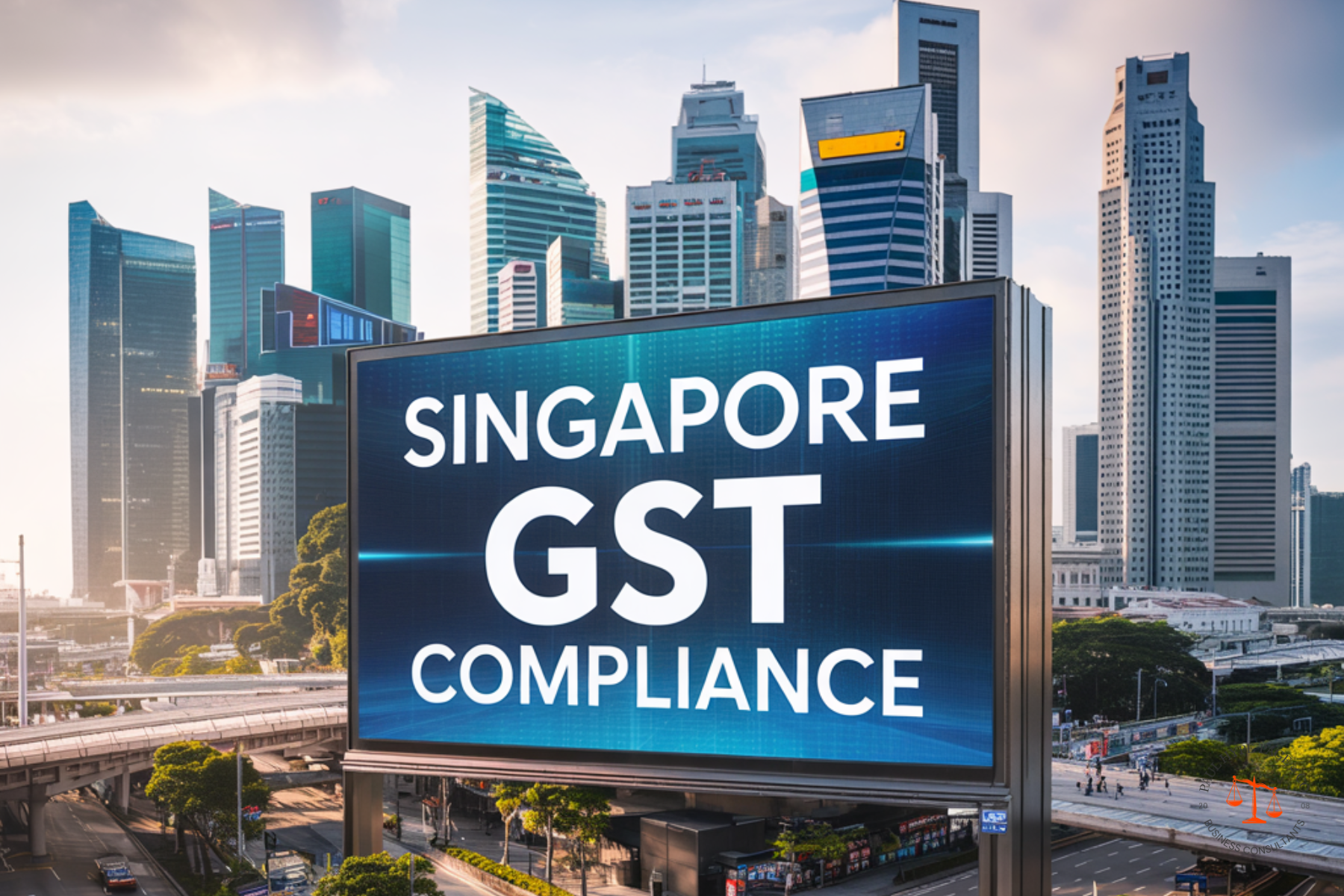Outline
- Introduction: What Does Singapore’s 2025 Growth Surge Really Mean?
- What Is Driving Singapore’s Fastest Private Sector Expansion in 2025?
- What Does This Growth Mean for Foreign Entrepreneurs Considering a Pte Ltd?
- What Should Foreign Entrepreneurs Consider Before Registering a Pte Ltd?
- Which Sectors Offer the Most Opportunity for Foreign Entrepreneurs in 2025?
- What Is the Incorporation Experience Like for Foreigners? (A Practical Overview)
- Key Insight: Why Timing Matters in a Growth Cycle
- Conclusion: What Should Foreign Entrepreneurs Take Away From Singapore’s 2025 Growth Surge?
- FAQs

Introduction: What Does Singapore’s 2025 Growth Surge Really Mean?
Singapore’s private sector surged ahead in early 2025, marking one of its strongest expansions in more than a decade. This growth is broad-based — spanning finance, advanced manufacturing, digital services, logistics, and professional advisory — and signals that the economy is entering a fresh momentum cycle.
For foreign entrepreneurs, this environment is more than a headline. It’s a set of favourable conditions that reduce entry risk, accelerate market validation, and increase the probability of business success.
But jumping in blindly isn’t the answer. Strategic timing matters, and so does understanding the structural forces behind this growth.
This article breaks down:
- why Singapore is expanding so quickly,
- where the opportunities lie for foreigners,
- what considerations matter before registering a Pte Ltd, and
- how this growth cycle aligns with longer-term entrepreneurship trends in Asia.
- The goal is simple: provide meaningful insight to help you make an informed decision.
What Is Driving Singapore’s Fastest Private Sector Expansion in 2025?
1. Strengthened Global Supply Chain Stability
After several years of disruption, regional logistics routes have stabilized. Singapore — historically Asia’s most reliable logistics and maritime hub — is once again seeing higher activity in freight, warehousing, and distribution.
Foreign companies in e-commerce, import/export, and high-value manufacturing benefit directly.
2. Momentum in Professional and Financial Services
Singapore continues strengthening its position as Asia’s financial centre. The demand for:
- compliance
- accounting
- corporate governance
- risk advisory
- fund administration is growing rapidly, thanks to evolving MAS and ACRA regulatory standards.
This results in a consistent need for experienced foreign professionals and consultants.
3. Increased Digital Transformation Across Southeast Asia
With ASEAN economies adopting cloud, cyber, and AI solutions faster than before, Singapore has become the region’s digital command centre.
Entrepreneurs serving APAC clients can operate efficiently from Singapore while tapping into regional markets like:
- Indonesia
- Malaysia
- Vietnam
- Thailand
- Philippines
- China
4. Growing Talent Mobility and Foreign Expertise Demand
Singapore’s Employment Pass reforms continue to prioritise high-skilled global talent. That means foreign founders with strong profiles, niche expertise, or scalable business models face favourable conditions when applying for work passes and relocation.
5. Government Policies Supporting Innovation and SMEs
2025 budget measures support:
- automation
- sustainability technology
- professional services
- cross-border trade
- upskilling
- R&D investment
Combined, these create a solid foundation for long-term entrepreneurial activity.
What Does This Growth Mean for Foreign Entrepreneurs Considering a Pte Ltd?
1. A “Lower-Risk” Window for Market Entry
Entering a new country is always a calculated risk. But during periods of strong market expansion:
- sales cycles shorten,
- capital access improves,
- partnerships grow faster, and
- customer adoption speeds up.
Foreigners incorporating a Pte Ltd in 2025 enter an economy in momentum mode, not recovery mode.
2. Clearer Business Validation Conditions
One advantage of Singapore’s growth is transparency — a core cultural pillar of its regulatory ecosystem.
For foreign entrepreneurs, this means:
- a predictable tax system,
- consistent incorporation rules,
- reliable enforcement of commercial contracts,
- transparent banking standards, and
- stable policy frameworks across ACRA, IRAS, MOM, and MAS.
You know what you’re getting — rare in many emerging markets.
3. Access to a Regional Customer Base From a Single Location
Singapore is one of the few jurisdictions where you can run operations for:
- ASEAN,
- North Asia,
- Australia, and
- global markets from a single headquarters.
Foreign founders often choose Singapore because it allows them to operate lean while scaling regionally.
4. Increased Credibility for B2B and International Transactions
A Singapore-registered company often carries a trust premium. Clients, suppliers, banks, and investors recognise Singapore for its:
- anti-corruption culture,
- strong compliance governance, and
- world-class corporate reputation.
Foreign entrepreneurs gain instant legitimacy simply by operating within the framework.
What Should Foreign Entrepreneurs Consider Before Registering a Pte Ltd?
1. Are You Incorporating for the Right Market Strategy?
A Singapore entity makes the most sense when you:
- target APAC customers
- need a reliable financial system
- plan to hire or relocate talent
- want low corporate taxes with clarity
- prefer strong intellectual property protection
If your customers are purely outside Asia, Singapore may still be beneficial — but evaluate this strategically.
2. Do You Understand the Regulatory Responsibilities?
Like any advanced economy, Singapore enforces strict compliance:
- annual filing
- tax reporting
- bookkeeping
- director duties
- payroll and CPF (if employing locals)
Understanding this upfront prevents friction later.
3. Will You Operate From Singapore or Overseas?
Foreign entrepreneurs have three common setups:
- Remote incorporation (run the business abroad)
- Relocation with Employment Pass
- Hybrid model with regional operations
Each has different cost, tax, and operational implications.
4. What Is Your Banking and Payments Strategy?
Singapore’s banking ecosystem is strong but increasingly thorough in onboarding. Foreigners should prepare:
- business plans
- proof of funds
- customer profiles
- clear activity descriptions
This improves approval success significantly.
5. How Will You Build a Compliance-Ready Structure?
With stricter AML/CFT regulations across the region, foreign entrepreneurs should prioritise:
- transparent shareholder structures
- proper documentation
- audited financial records when required
- well-defined UBO (beneficial owner) declarations
This prevents future banking or regulatory issues.
Which Sectors Offer the Most Opportunity for Foreign Entrepreneurs in 2025?
1. Tech, Cloud, AI & Cybersecurity
Digital adoption in ASEAN is accelerating. Foreign expertise is highly valued, especially in niche sectors like automation, AI workflows, SaaS security, and enterprise cloud implementation.
2. Consulting, Compliance & Corporate Advisory
Due to increasing regulations, businesses need advisory services relating to:
- accounting
- tax optimisation
- operational compliance
- digital transformation
- regional expansion support
Foreign professionals often bring specialised skills.
3. Cross-Border Trading & E-Commerce
Singapore’s logistics infrastructure and free-trade ecosystem provide strong foundations for foreign traders.
4. Finance, Fintech & Investment Structures
From asset management to payments technology, Singapore remains Asia’s financial command centre.
5. Sustainability & GreenTech
Government incentives and ESG targets are fueling demand for clean energy, carbon solutions, and sustainability consulting.
What Is the Incorporation Experience Like for Foreigners? (A Practical Overview)
Foreign entrepreneurs will typically navigate:
- choosing a business structure
- selecting the correct SSIC code
- appointing a local director (often via a nominee service)
- establishing a compliance calendar
- preparing for banking onboarding
- applying for Employment Pass (if relocating)
While documentation is straightforward, foreigners should focus most on:
- clarity of business model,
- transparent shareholder structure,
- proper KYC documents.
This ensures smooth registration and banking processes.
Key Insight: Why Timing Matters in a Growth Cycle
Strong private-sector expansion is not just favourable — it’s strategic. Businesses launched during growth cycles often:
- gain early customer traction,
- attract partnerships faster,
- reduce validation time,
- recruit higher-quality talent,
- secure better investor interest.
For foreign entrepreneurs, 2025 is a rare alignment of market momentum + regulatory stability + global investor confidence + rising cross-border demand.
Conclusion: What Should Foreign Entrepreneurs Take Away From Singapore’s 2025 Growth Surge?
Singapore’s impressive private-sector expansion is more than a strong economic headline — it’s a signal of renewed confidence, regional leadership, and long-term stability.
For foreign entrepreneurs, this means:
- reduced entry risks,
- a supportive business ecosystem,
- predictable compliance rules,
- and access to an increasingly connected APAC market.
Whether you incorporate now or continue researching, understanding the forces behind Singapore’s growth helps you make well-informed, strategic decisions about your regional business future.
FAQs
Yes. For most new companies, payroll forms the largest recurring cost. Incorporating during a period of slower wage growth allows founders to structure teams more efficiently, onboard early hires at predictable cost levels, and build operational stability before future wage increases return.
Labour-intensive and service-driven sectors see the greatest benefit, including consulting, digital marketing, back-office support, logistics, and customer service roles. Tech and finance still show healthy competition, but wage moderation has made it easier for startups to secure support and mid-level talent at sustainable rates.
Not in this context. Wage moderation in Singapore is linked to post-pandemic normalisation, improved productivity, and better talent availability—not declining demand. The broader labour market is still expanding, meaning businesses can expect stability rather than contraction.
Yes. When wage pressure cools, employers typically see a steadier flow of applicants and more reasonable salary expectations. This helps new SMEs and foreign-owned companies compete more effectively against larger firms when recruiting for roles in operations, sales, finance, and technology.
Moderating wage growth means salary increases are stabilising after several years of rapid inflation-driven jumps. For new companies, this creates more predictable hiring costs, reduced manpower pressure during the early stages, and a better opportunity to build foundational teams without facing intense salary competition.
Share This Story, Choose Your Platform!
Related Business Articles







